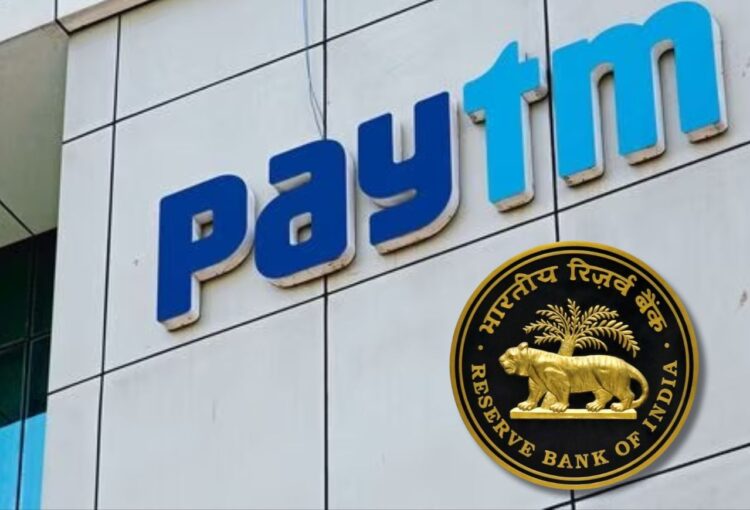Introduction
On February 29, 2024, Paytm Payments Bank (PPBL) faced a significant challenge when the Reserve Bank of India (RBI) imposed restrictions on its operations. These restrictions barred the bank from accepting new deposits, conducting credit transactions, and offering services like fund transfers and bill payments. This event sparked a major controversy, raising concerns about the future of Paytm, a leading Indian fintech company.
Background
The RBI's action stemmed from alleged "persistent non-compliance" by PPBL regarding regulatory norms. While the specific details of the non-compliance haven't been publicly disclosed, the RBI's move highlighted the importance of adhering to financial regulations in a rapidly evolving digital payments landscape.
Impact of the Controversy

Customer concerns
The immediate concern was for existing users, who were unsure about the implications for their existing accounts and wallets. Paytm, however, clarified that users could still utilize existing balances and access other services like shopping, bill payments using linked accounts, and travel bookings.
Financial impact
The restrictions impacted PPBL's ability to generate revenue from new deposits and credit transactions. The company also faced reputational damage due to the negative publicity surrounding the controversy.
Market uncertainty
The controversy created uncertainty in the fintech market, raising questions about the regulatory environment and potential risks for other players.

Current Status (as of February 29, 2024)
The RBI has granted a temporary extension until March 15, 2024, to allow PPBL to settle ongoing transactions and facilitate account closure for users who wish to do so. Paytm has committed to working with the RBI to resolve the compliance issues and regain full operational capacity. The future of PPBL remains uncertain, and it's unclear whether the bank will be able to resume accepting deposits and offering full services.
Possible Future Scenarios
- Compliance and revival - Paytm successfully addresses the RBI's concerns, regains full operational capacity, and PPBL continues to operate as a payment bank.
- Strategic shift - Paytm focuses on its core wallet and other financial services businesses, potentially exiting the payments bank space altogether.
- Merger or acquisition - PPBL merges with another entity or is acquired by a larger player in the financial sector.

Key Takeaways
This case study underscores the importance of regulatory compliance for fintech companies operating in a dynamic and evolving environment. It also highlights the potential consequences of non-compliance, including operational restrictions, reputational damage, and financial losses. The future of Paytm and PPBL remains uncertain, and only time will tell how this controversy unfolds and impacts the broader Indian fintech landscape.


0 Comments